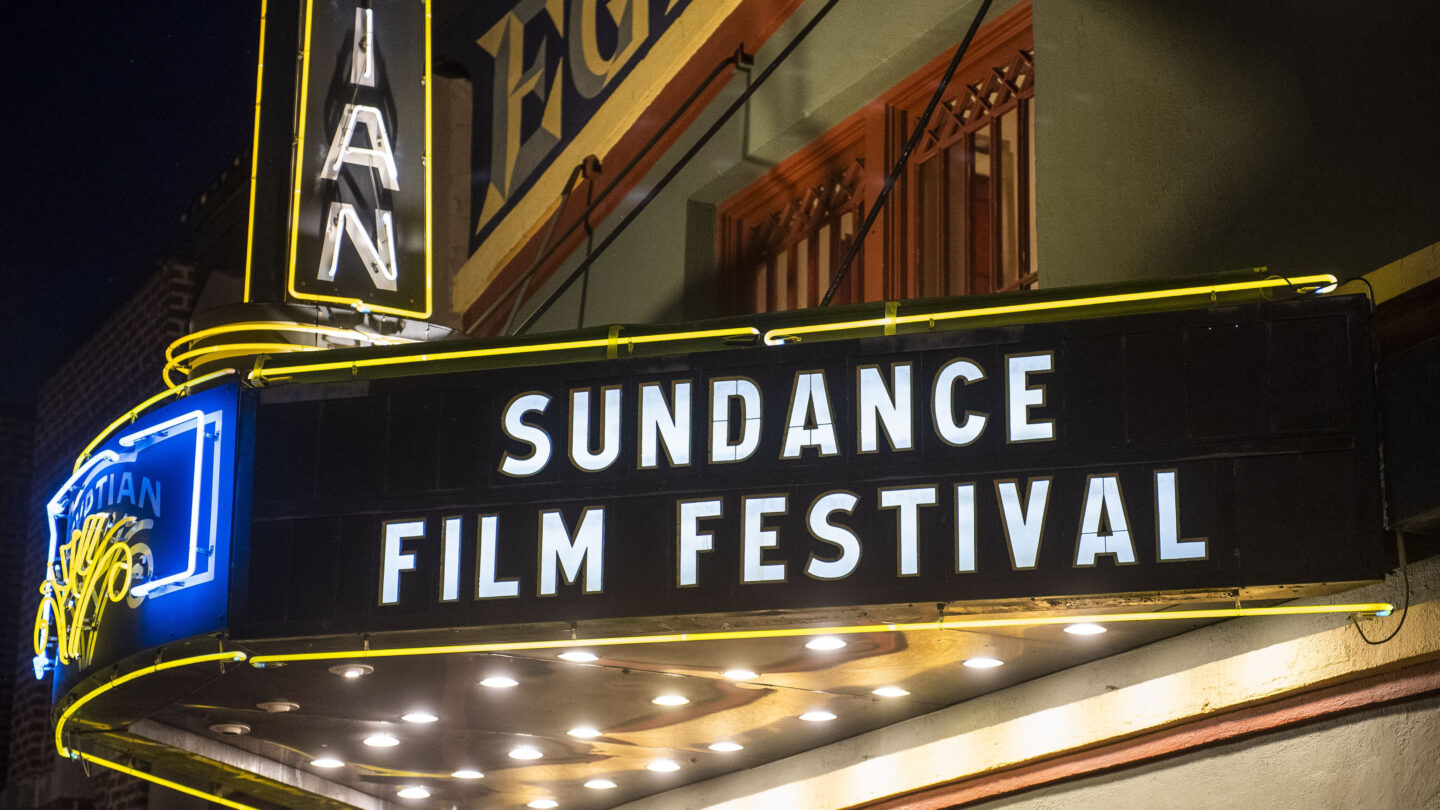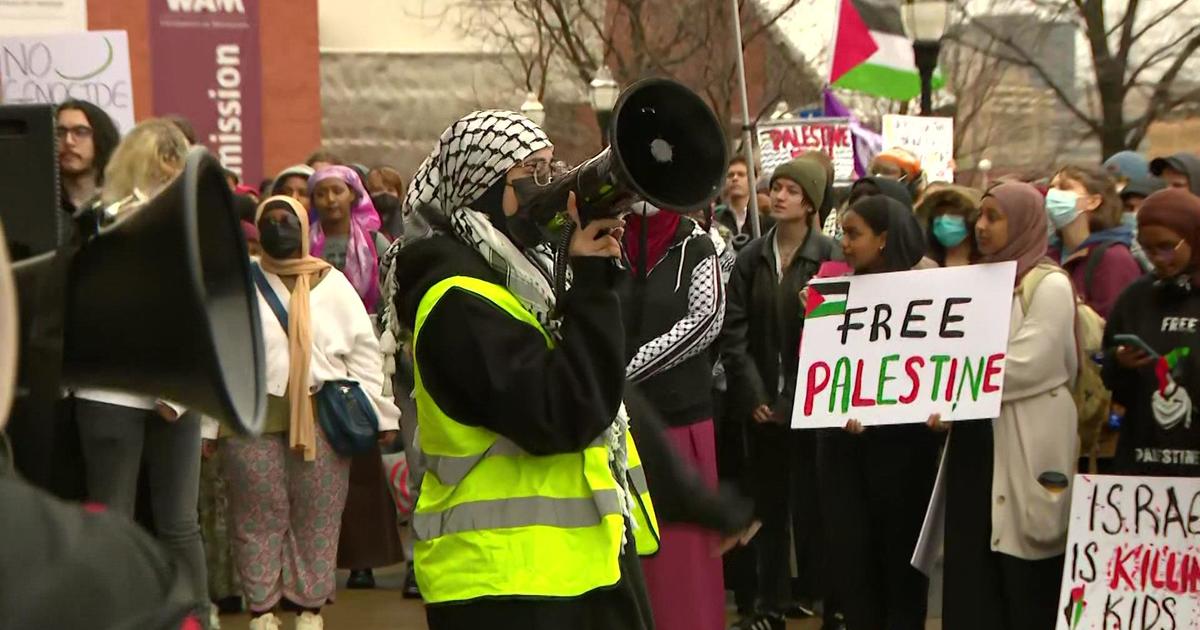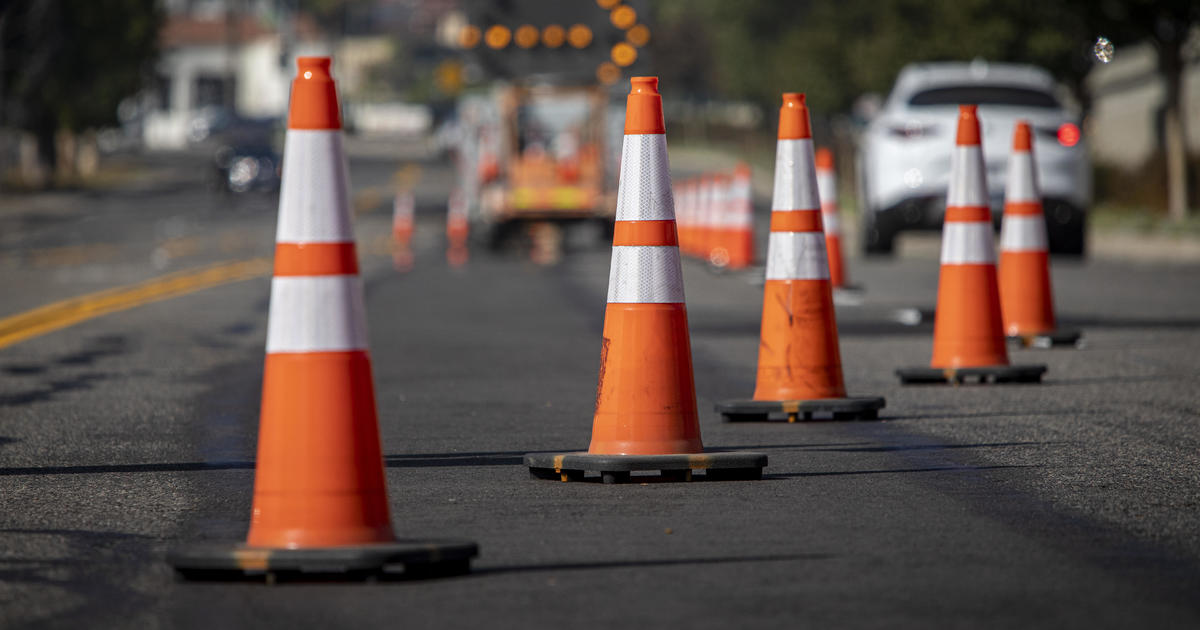World
Paris prepares for 100-day countdown to Olympics, aiming to reignite passion for the Games
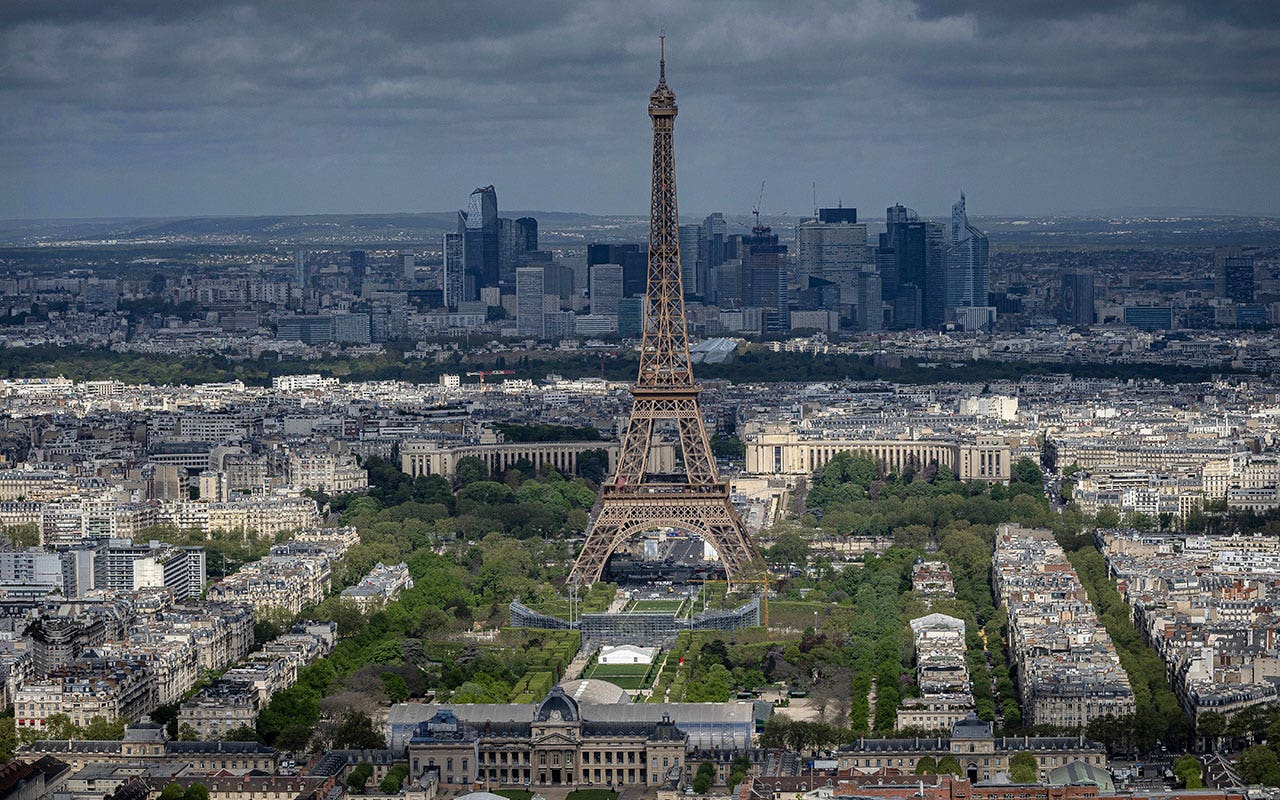
- April 17 marks the 100-day countdown to the Paris Olympics opening ceremony.
- Paris officials say they are aiming for a socially positive, less polluting and less wasteful Games, setting a new standard for future events.
- Many Parisians plan to leave, to avoid the disruptions or to rent their homes to the expected 15 million visitors.
In Paris’ outskirts, a bright-eyed young girl is eager for the Olympic and Paralympic Games to end.
That’s because the swimming club where 10-year-old Lyla Kebbi trains will inherit an Olympic pool. It will be dismantled after the Games and trucked from the Olympic race venue in Paris’ high-rise business district to Sevran, a Paris-area town with less glitter and wealth. There, the pieces will be bolted back together and — voila ! — Kebbi and her swim team will have a new Olympic-sized pool to splash around in.
“It’s incredible !” she says. “I hope it’s going to bring us luck,” adds her mother, Nora.
US OLYMPIC UNIFORM FOR TRACK ATHLETES SPARKS CONCERNS ABOUT COVERAGE: ‘EVERYTHING’S SHOWING’
In 100 days as of Wednesday, the Paris Olympics will kick off with a wildly ambitious waterborne opening ceremony. But the first Games in a century in France’s capital won’t be judged for spectacle alone. Another yardstick will be their impact on disadvantaged Paris suburbs, away from the city-center landmarks that are hosting much of the action.
Stands are seen under construction on the Champ-de-Mars with the Eiffel Tower on April 15, 2024, in Paris. April 17 marks the 100-day countdown to the Paris Olympics opening ceremony. (AP Photo/Aurelien Morissard)
By promising socially positive and also less polluting and less wasteful Olympics, the city synonymous with romance is also setting itself the high bar of making future Games generally more desirable.
Critics question their value for a world grappling with climate warming and other emergencies. Potential host cities became so Games-averse that Paris and Los Angeles were the only remaining candidates in 2017 when the International Olympic Committee selected them for 2024 and 2028, respectively.
After scandals and the $13 billion cost of the pandemic-delayed Tokyo Games in 2021, unfulfilled promises of beneficial change for host Rio de Janeiro in 2016 and the 2014 Winter Games in Sochi tarnished by Russian doping and President Vladimir Putin’s subsequent land grabs in Ukraine, the Switzerland-based IOC has mountains of skepticism to dispel.
AS MANY CITIES SOUR ON HOSTING THE OLYMPICS, SALT LAKE CITY’S ENTHUSIASM ENDURES
Virtuous Summer Games in Paris could help the long-term survival of the IOC’s mega-event.
SPREADING BENEFITS BEYOND CENTRAL PARIS
The idea that the July 26-Aug. 11 Games and Aug. 28-Sept. 8 Paralympics should benefit disadvantaged communities in the Seine-Saint-Denis region northeast of Paris was built from the outset into the city’s plans.
Seine-Saint-Denis is mainland France’s poorest region. Thanks to generations of immigration, it also is vibrantly diverse, counting 130 nationalities and more than 170 languages spoken by its 1.6 million inhabitants. For Seine-Saint-Denis kids facing racial discrimination and other barriers, sports are sometimes a route out. World Cup winner Kylian Mbappé honed his silky soccer skills as a boy in the Seine-Saint-Denis town of Bondy.
Once heavily industrialized, Seine-Saint-Denis became grim and scary in parts after many jobs were lost. Rioting rocked its streets in 2005 and again last year. Members of an Islamic extremist cell that killed 130 people in the French capital in 2015 hid after the carnage in an apartment in the town of Saint-Denis and were killed in a shootout with heavily armed SWAT teams. That drama unfolded just a 15-minute walk from the Olympic stadium that will host track and field and rugby and the closing ceremonies.
Concretely, the Games will leave a legacy of new and refurbished sports infrastructure in Seine-Saint-Denis, although critics say the investment still isn’t enough to catch it up with better equipped, more prosperous regions.
Mamitiana Rabarijaona grew up close to the Olympic stadium, built originally for the 1998 soccer World Cup. He says it didn’t provide much of a boost for Seine-Saint-Denis residents. He believes the Olympics will be “a big party” and he will be among 45,000 volunteers who’ll be helping. But he is not expecting Olympic-related investments to magically erase Seine-Saint-Denis’ many difficulties.
“It’s like lifting the carpet and brushing the dust underneath,” he said. “It doesn’t make it go away.”
Seine-Saint-Denis got the new Olympic village that will become housing and offices when the 10,500 Olympians and 4,400 Paralympians have left. It also is home to the Games’ only purpose-built competition venue, an aquatics center for diving, water polo and artistic swimming events. Other competition venues already existed, were previously planned or will be temporary.
“We really were driven by the ambition of sobriety and above all not to build sports facilities that aren’t needed and which will have no reason to exist after the Games,” Marie Barsacq, the organizing committee’s legacy director, said in an interview.
The hand-me-down 50-meter pool for Sevran will be a significant upgrade. The Seine-Saint-Denis town of 51,000 people was whacked by factory closures in the 1990s. Its existing 25-meter pool is nearly 50 years old.
Other Seine-Saint-Denis towns are also getting new or renovated pools — particularly welcome for the region’s children, because only half of them can swim.
“The ambition for these Olympic Games … is that they benefit everyone and for the longest time possible,” said Sevran Mayor Stéphane Blanchet. The Olympics, Blanchet said, can’t “carry on just passing though and then moving on without thinking about tomorrow.”
PARIS’ COSTS COMPARE FAVORABLY
At close to $9.7 billion, more than half from sponsors, ticket sales and other non-public funding, Paris’ expenses so far are less than for the last three Summer Games in Tokyo, Rio and London in 2012.
Including policing and transport costs, the portion of the bill for French taxpayers is likely to be around $3.25 billon, France’s body for auditing public funds said in its most recent study in July.
Security remains a challenge for the city repeatedly hit by deadly extremist violence. The government downsized ambitions to have 600,000 people lining the River Seine for the opening ceremony. Citing the risk of attacks, it shelved a promise that anyone could apply for hundreds of thousands of free tickets. Instead, the 326,000 spectators will either be paying ticket-holders or have been invited.
Privacy advocates are critical of video surveillance technology being deployed to spot security threats. Campaigners for the homeless are concerned that they will be swept off streets. Many Parisians plan to leave, to avoid the disruptions or to rent their homes to the expected 15 million visitors. With trade unions pushing for Olympic bonuses, strikes are also possible.
And all this against an inflammable backdrop of geopolitical crises including but not limited to the Israel-Hamas war and Russia’s invasion of Ukraine. As a consequence, the IOC isn’t allowing athletes from Russia and ally Belarus to parade with other Olympians at the opening ceremony.
Still, Olympics fans expect big things of Paris. They include Ayaovi Atindehou, a 32-year-old trainee doctor from Togo studying in France. The Olympic volunteer believes the Games can bridge divisions, even if just temporarily.
“The whole world without racial differences, ethnic differences, religious differences. We will be all together, shouting, celebrating,” he said. “We need the Olympic Games.”

World
Hamas delegation due in Cairo on Monday for Gaza ceasefire talks

World
Ukraine's Zelenskyy urges faster US weapon deliveries
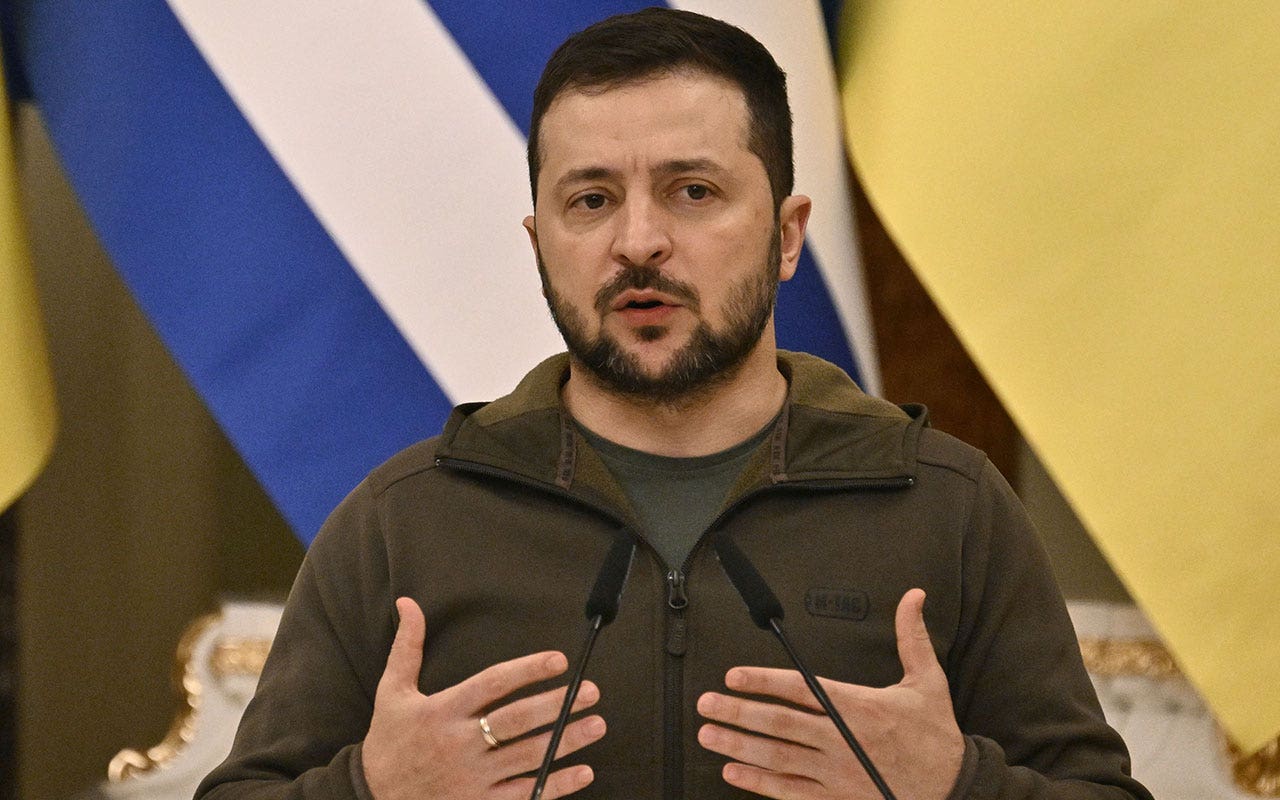
- President Volodymyr Zelenskyy said on Monday that U.S. weapons have begun to arrive in Ukraine.
- Zelenskyy voiced the urgency of accelerating the process due to advancing Russian forces attempting to exploit the situation.
- He also mentioned the lack of significant positive developments in timely support for the Ukrainian army.
President Volodymyr Zelenskyy said on Monday that vital U.S. weapons were starting to arrive in Ukraine in small amounts.
He said that the process needed to move faster.
This is the result of advancing Russian forces trying to take advantage.
REPORTER’S NOTEBOOK: UKRAINE’S ZELENSKYY OPENS UP ON US AID, ISRAEL, TRUMP
Zelenskyy spoke during a joint news conference in Kyiv alongside visiting NATO chief Jens Stoltenberg.
President Volodymyr Zelenskyy said on Monday that vital U.S. weapons were starting to arrive in Ukraine in small amounts and that the process needed to move faster as advancing Russian forces were trying to take advantage. (GENYA SAVILOV/AFP via Getty Images)
During the conference, he said the situation on the battlefield directly depended on the speed of ammunition supplies to Ukraine.
“Timely support for our army. Today I don’t see anything positive on this point yet. There are supplies, they have slightly begun, this process needs to be sped up,” he said.
World
Nine on trial in Germany over alleged far-right coup plot

Nine people charged with terrorism in connection with an alleged far-right plot to topple the German government went on trial on Monday in one of three linked cases.
The trial – which opened on Monday in Stuttgart – is the first to open in relation to the purported conspiracy, which came to light in late 2022. It is focused on those defendants of the Reich Citizens group who allegedly were part of its so-called military arm, German news agency dpa reported.
Federal prosecutors in December filed terrorism charges against a total of 27 people, one of whom has since died.
Nine other suspects, among them a self-styled prince and a former far-right lawmaker, will go on trial on 21 May at a Frankfurt state court in the most prominent of the three cases. The other eight will go on trial in Munich on 18 June.
On trial in the Frankfurt case includes Heinrich XIII Prince Reuss, whom the group allegedly planned to install as Germany’s provisional new leader; Birgit Malsack-Winkemann, a judge and former lawmaker with the far-right Alternative for Germany party; and a retired paratrooper.
The proceedings of the three cases are expected to last well into 2025.
German Interior Minister Nancy Faeser said on public broadcaster ZDF that the trial “shows the strength of our rule of law that the largest terrorist network of Reich Citizens to date… has to answer for its militant plans to overthrow the government.”
Prosecutors have said that the accused believed in a “conglomerate of conspiracy myths,” including Reich Citizens and QAnon ideology, and were convinced that Germany is ruled by a so-called deep state.
Adherents of the Reich Citizens movement, or Reichsbuergerbewegung in German, reject Germany’s postwar constitution and have called for bringing down the government, while QAnon is a global conspiracy theory with roots in the US.
According to prosecutors, the group planned to storm into the parliament building in Berlin and arrest lawmakers. It allegedly intended to negotiate a post-coup order primarily with Russia, as one of the allied victors of World War II.
The nine defendants at the Stuttgart trial are accused of membership in a terrorist organisation and “preparation of a high treasonous enterprise.” One of the defendants is also on trial for attempted murder, dpa reported.
Most of the nine suspects in the Frankfurt trial are also charged with membership in a terrorist organisation and “preparation of high treasonous undertaking.” The other eight alleged members of the group have been charged in separate indictments at the court in Munich.
-

 Kentucky1 week ago
Kentucky1 week agoKentucky first lady visits Fort Knox schools in honor of Month of the Military Child
-

 News1 week ago
News1 week agoIs this fictitious civil war closer to reality than we think? : Consider This from NPR
-

 World1 week ago
World1 week agoShipping firms plead for UN help amid escalating Middle East conflict
-

 Politics1 week ago
Politics1 week agoICE chief says this foreign adversary isn’t taking back its illegal immigrants
-

 Politics1 week ago
Politics1 week ago'Nothing more backwards' than US funding Ukraine border security but not our own, conservatives say
-

 News1 week ago
News1 week agoThe San Francisco Zoo will receive a pair of pandas from China
-

 World1 week ago
World1 week agoTwo Mexican mayoral contenders found dead on same day
-

 Politics1 week ago
Politics1 week agoRepublican aims to break decades long Senate election losing streak in this blue state

